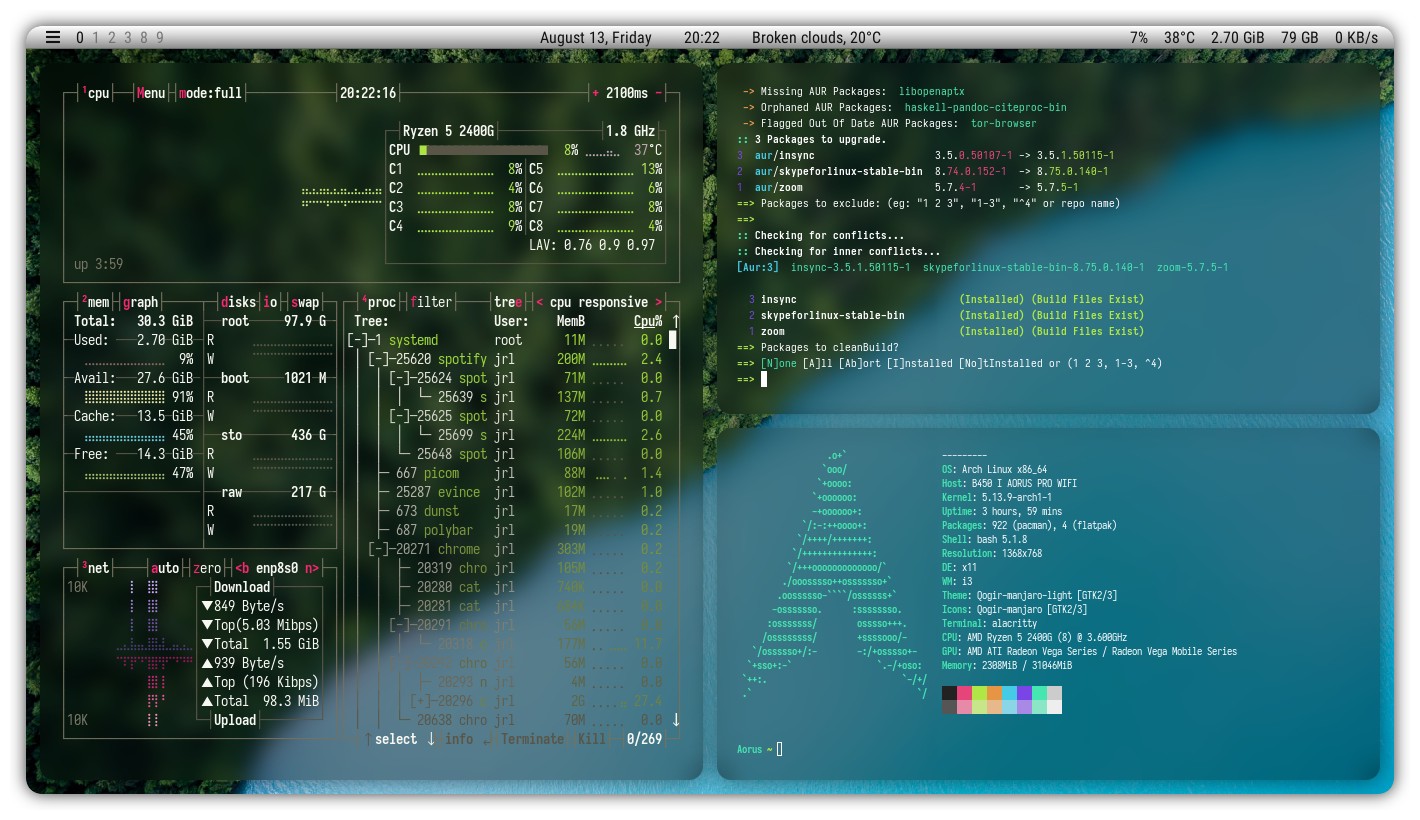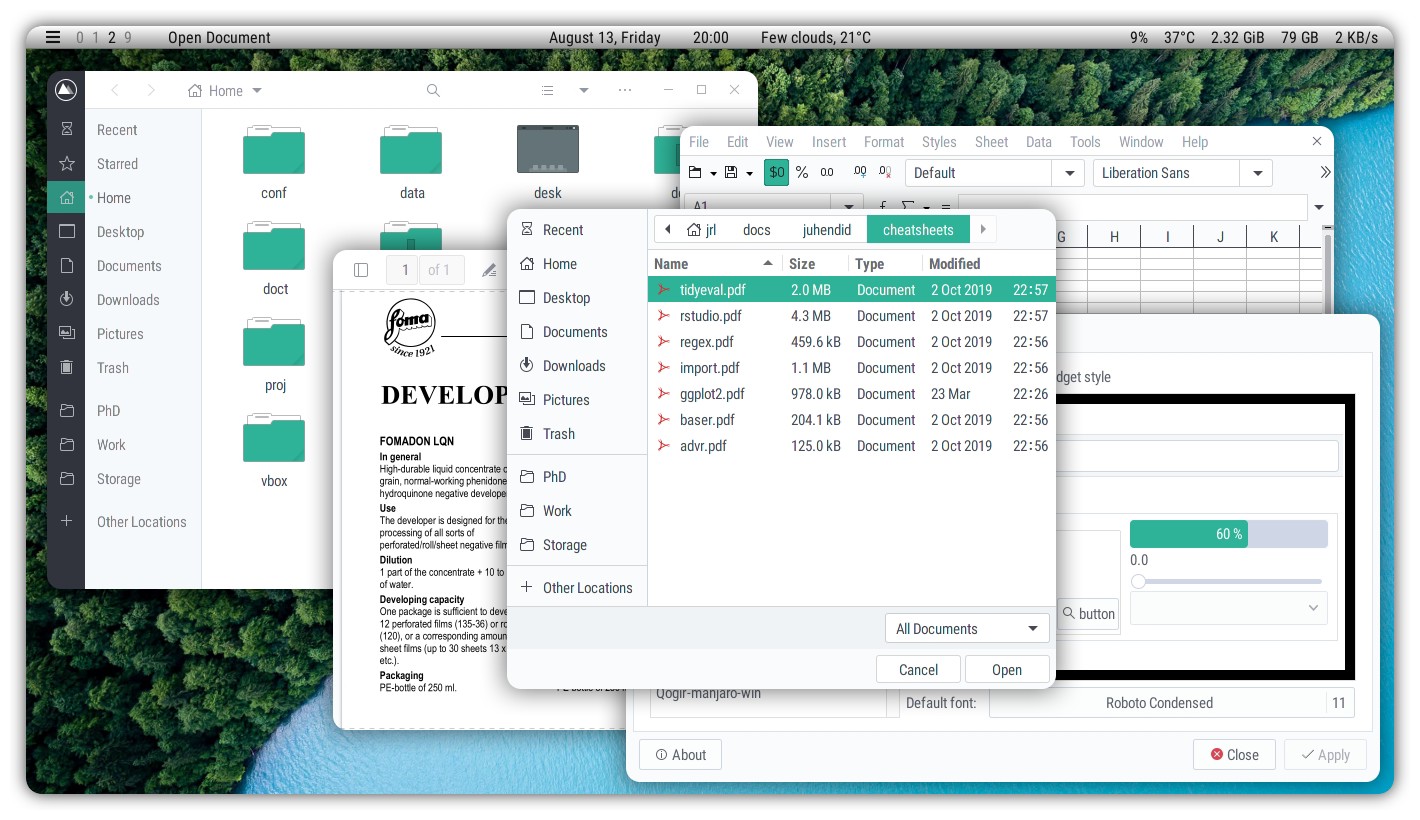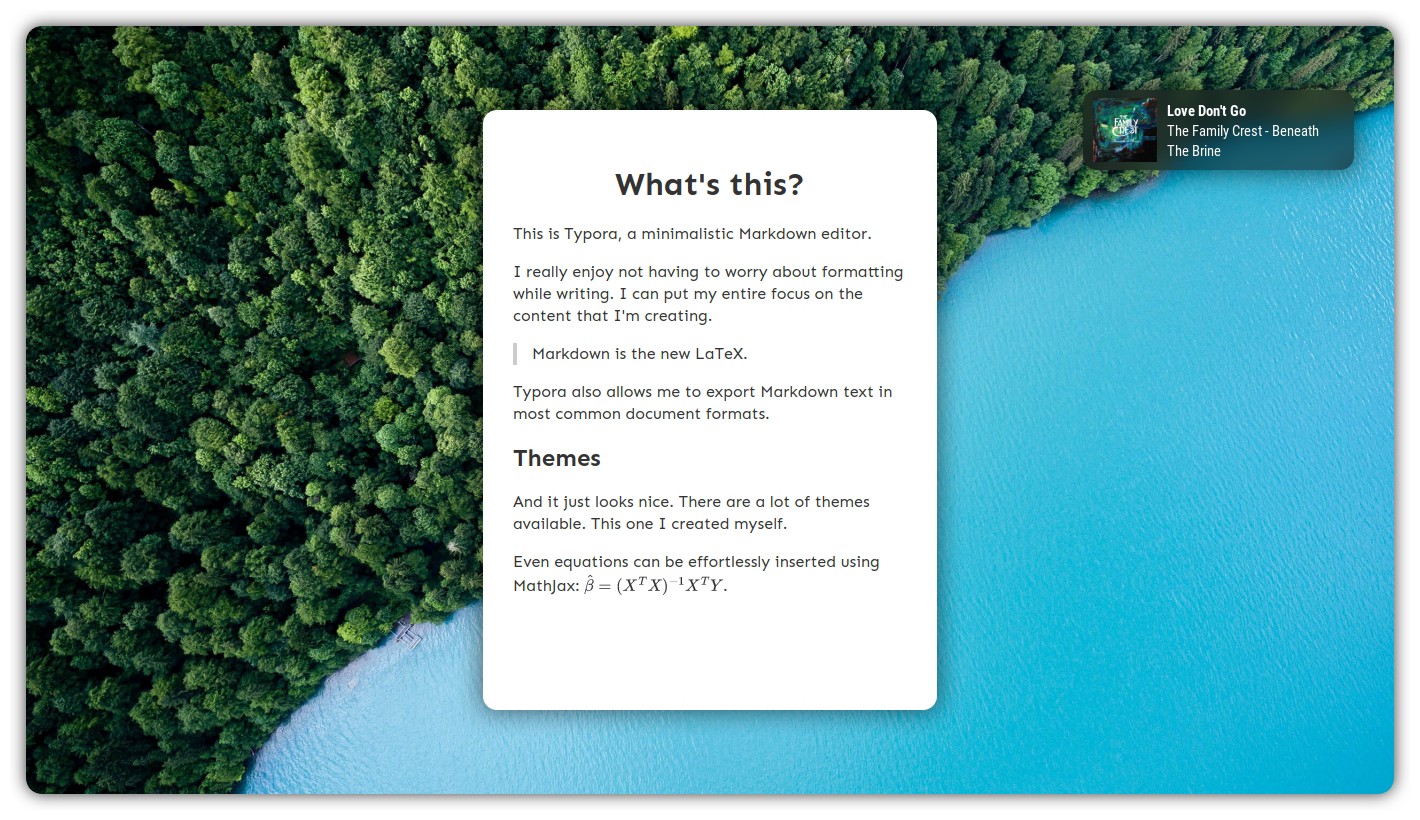This repository contains configuration files that define how my Linux system looks and feels. The software used is listed below.
- The desktop is served by i3 window manager (the version with gaps).
- Window compositing is provided by Picom (picom-ibhagwan-git).
- The top bar is Polybar.
- Rofi takes care of app launcing, window switching, opening files and running custom scripts.
- System notifications and prompts are displayed by Dunst.
- The wallpaper is not included in the repository but can likely be dug up by searching for Lake Brienz.
Alacritty windows have just enough darkness and blur to be readable while remaining aesthetic. The monospace font is Iosevka and color scheme is Monokai that nicely matches the wallpaper.
The minimal flat look of GUI apps is produced by the Manjaro flavor of Qogir GTK theme. The theme has also matching icons and cursors. Even Qt apps follow this theming due to export QT_QPA_PLATFORMTHEME=gtk3 in the .xinitrc.
I use Markdown with Typora for all of my writing (unless forced to work with .docx files). By hiding Polybar with a simple key binding, I can quicly unclutter the desktop. Okay, that accidental Dunst prompt can be distracting but can be avoided by not listening to music while writing.
Because toolbars are unnecessary when streaming media via Netflix or YouTube, I run such websites in kiosk mode on Google Chrome. These can be launched just like any other app due to custom .desktop files in .local/share/applications.
Apps are launched via Rofi that is displayed when clicking on the icon on left side of the bar or a key binding on keyboard. The background is chosen to match that of Alacritty.
Nice thing about Rofi is that in can be configured to lauhch anyting. I also use it to quickly run custom scripts that can be defined in a simple .csv file.





